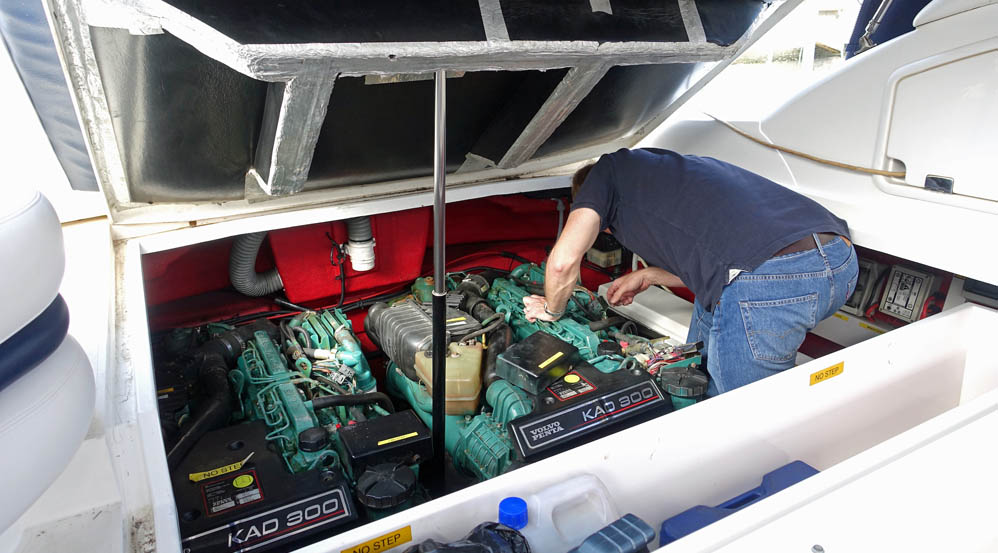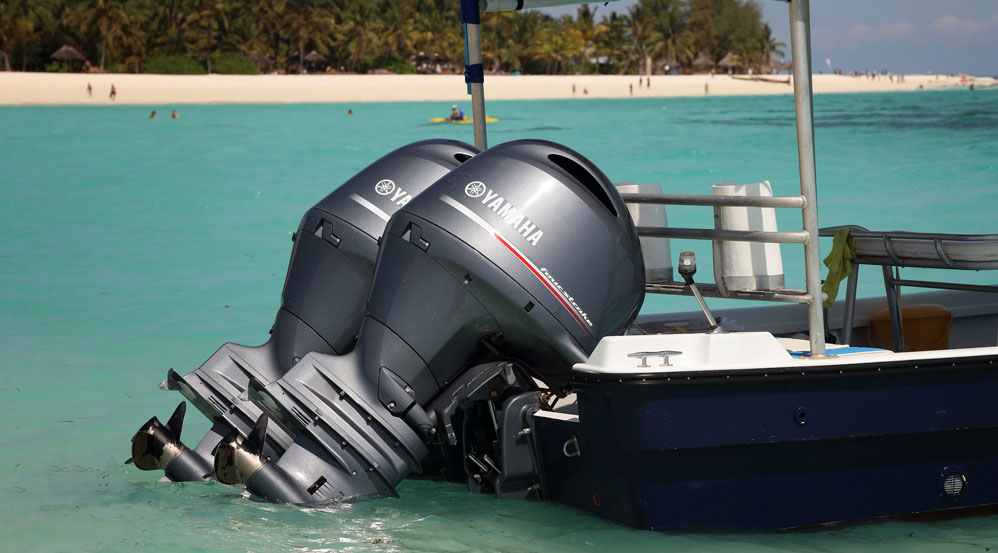- November 23, 2024
- Boat Maintenance
- Essential Tips for Working on Marine Engines
Marine engines are the beating hearts of any vessel, ensuring smooth and reliable operation on the water. Whether you’re a seasoned marine mechanic or a boating enthusiast looking to take on some maintenance yourself, understanding the nuances of marine engines is crucial. Here’s a comprehensive guide to the key things you need to know when working on marine engines.

Understand the Environment Marine Engines Operate In
Marine engines face harsher conditions compared to automotive engines. Constant exposure to saltwater, humidity, and fluctuating temperatures means these engines require special attention. Corrosion is a primary concern, so regular cleaning, inspection, and application of anti-corrosion sprays are essential to prevent long-term damage.
Know the Engine Type
Marine engines come in various types:
- Inboard engines: Installed inside the boat, often used for larger vessels.
- Outboard motors: Compact, external engines ideal for smaller boats.
Sterndrive engines: A combination of inboard and outboard characteristics. - Diesel vs. Gasoline engines: Diesel engines are more fuel-efficient and durable, while gasoline engines are often lighter and provide higher speeds.
Understanding the type of engine you’re working on helps tailor maintenance and repair practices.
Prioritize Preventive Maintenance
Routine maintenance can save you from costly repairs. Key tasks include:
- Oil changes: Replace engine oil every 50-100 hours of operation or per the manufacturer’s recommendation.
- Cooling system check: Regularly inspect and flush the cooling system to prevent overheating.
- Fuel system care: Replace fuel filters and clean injectors to ensure optimal performance. Use a stabilizer if the boat will be idle for long periods.
Learn the Common Troubleshooting Signs
Marine engines often provide early warning signs of trouble. Pay attention to:
- Overheating: Check for a clogged water intake or a failing impeller.
- Loss of power: Could indicate dirty fuel, a fouled propeller, or engine wear.
- Unusual noises: Knocking or rattling may signal internal issues.
- Excessive smoke: White smoke suggests water in the fuel, blue smoke indicates oil burning, and black smoke points to a fuel-rich mixture.
Use Proper Tools and Equipment
Marine engines require specific tools, such as:
- Torque wrenches for precise tightening.
- Compression testers to diagnose engine health.
- Marine-grade lubricants and sealants designed to withstand saltwater exposure.
Having a well-equipped toolbox ensures efficient and safe repairs.
Follow Manufacturer Guidelines
Every engine is unique. Always consult the owner’s manual for recommended parts, fluids, and maintenance intervals. Using non-approved products or skipping steps can void warranties and lead to mechanical failures.
Keep Safety in Mind
Working on marine engines involves risks. Follow these safety tips:
- Disconnect the battery before working on electrical components.
- Ensure proper ventilation to avoid fuel vapor buildup.
- Wear protective gear, including gloves and safety glasses.
- Keep fire extinguishers nearby, especially when working with fuel systems.
Stay Updated on Regulations and Technology
Marine engines are subject to environmental regulations, such as emissions standards. Additionally, modern engines often feature advanced electronics and diagnostics tools. Investing time to learn about new technologies and regulations ensures compliance and better maintenance practices.
Document Your Work
Keeping detailed records of maintenance and repairs helps identify recurring issues and demonstrates proper care if you decide to sell the vessel. Note dates, parts used, and any observations during servicing.
Know When to Call a Professional
Some tasks, such as rebuilding an engine or diagnosing complex electrical issues, are best left to certified marine mechanics. Recognizing your limits prevents further damage and ensures the engine’s longevity

Maintaining a marine engine is a rewarding endeavor that ensures safe and enjoyable time on the water. With regular care, proper tools, and a keen understanding of the engine’s needs, you can extend its lifespan and keep your vessel running smoothly. Whether you’re conducting routine checks or tackling advanced repairs, these tips will help you navigate the intricacies of marine engine maintenance.
